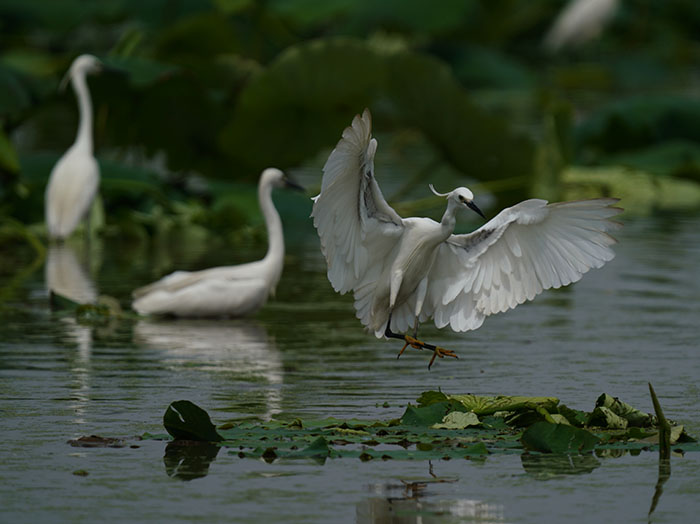What is the solution?
Expanding biodiversity conservation from remote mountains and reserves into neighborhoods and more densely populated areas. Biodiversity Conservation in our Neighborhoods (BCON) is rethinking traditional approaches to conservation and working to support biodiversity.
This solution improves our resource security in the planet category.
How does it #MoveTheDate?
By growing conservation areas, BCON can help reduce the loss of biodiversity, mitigate climate change, and reduce the waste of natural resources, in addition to improving the co-existence between humans and nature.
How is it scalable?
The opportunity to implement BCON and conserve biodiversity exists in communities around the world.
What is the solution?
Expanding biodiversity conservation from remote mountains and reserves into neighborhoods and more densely populated areas. Biodiversity Conservation in our Neighborhoods (BCON) is rethinking traditional approaches to conservation and working to support biodiversity.
This solution improves our resource security in the planet category.
How does it #MoveTheDate?
By growing conservation areas, BCON can help reduce the loss of biodiversity, mitigate climate change, and reduce the waste of natural resources, in addition to improving the co-existence between humans and nature.
How is it scalable?
The opportunity to implement BCON and conserve biodiversity exists in communities around the world.

Photo credit: CBCGDF-BCON Working Group

Dr. Jinfeng Zhou, Secretary General of the China Biodiversity Conservation and Green Development Foundation (CBCGDF), believes that the divided approach to conservation of nature located away from humans is a solution that could be improved upon, especially with the rapid expansion of human activities and the accelerated pace of urbanization. Believing that biodiversity conservation should take place near humans, he proposed the theory of Biodiversity Conservation in our Neighborhoods (BCON). China Biodiversity Conservation and Green Development Foundation set up a BCON working group to identify and promote best practices for biodiversity conservation in neighborhoods. Learn more about their work:
- Based on the concept of BCON, it is feasible to expand Yunnan’s protected area to the surrounding areas and designate an elephant national park. Integrating existing national, provincial, and municipal reserves around Yunnan into a large national park system would allow elephants to migrate between regions. Establishing an area suitable for biodiversity conservation in residential areas of the park would protect human habitat and achieve the goal of harmonious coexistence between man and nature.
- The aquatic wood farm was established in 2015, only 30 minutes away from the main urban area. Tea, chrysanthemum, grapes, peaches, and hazelnuts are some of the main agricultural products produced without the use of herbicides, pesticides, fertilizers, plant growth regulators, or other chemical reagents. The farm aims to help protect biodiversity and conserve the ecological environment.
- With the expansion of human activities, a significant number of biodiversity protection projects have emerged in densely populated areas. Efforts made to establish a lotus field conservation area provide a creative and leading example of such a project.
There’s no benefit in waiting!
Acting now puts you at a strategic advantage in a world increasingly defined by ecological overshoot. Countless solutions exist that #MoveTheDate. They’re creative, economically viable, and ready to deploy at scale. With them, we can make ourselves more resilient and #MoveTheDate of Earth Overshoot Day. If we move the date 6 days each year, humanity can be out of overshoot before 2050.
